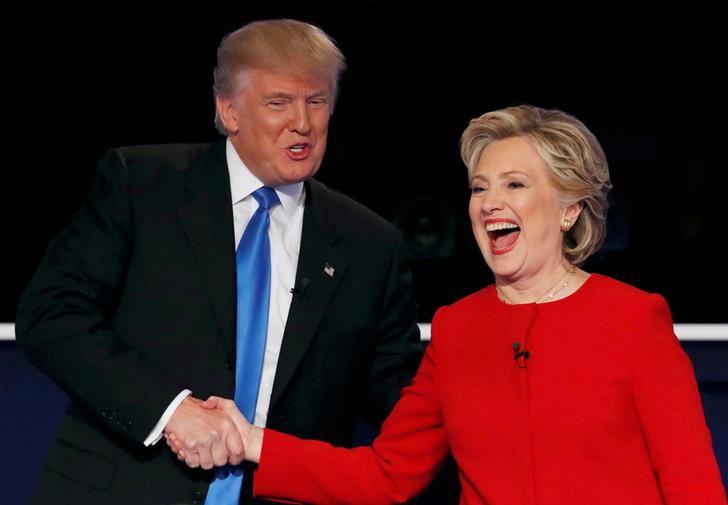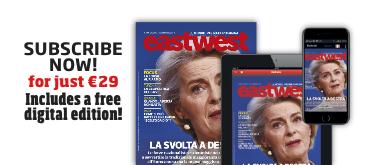The first presidential debate as seen from Russia
The Russian threat, the Kremlin’s hackers and Trump’s relations with Putin: the Russian connection was among the leading topics during the first face-off between the two candidates. The Russian press was unusually balanced, but the same cannot be said about the web.


The Russian threat, the Kremlin’s hackers and Trump’s relations with Putin: the Russian connection was among the leading topics during the first face-off between the two candidates. The Russian press was unusually balanced, but the same cannot be said about the web.
A few minutes after the spotlights for the debate between the two candidates for the White house were switched off, the hashtag #TrumpWon exploded on Twitter, so much so that in a few hours it hit the first place among the trending topics, prompting Trump to retweet it with a “thank you”. But then something strange happened, because the @DustinGiebel account tweeted a screenshot from TrendsMap showing that #TrumpWon originated in St. Petersburg, Russia. The map was retweeted 14,000 times, before being debunked as a fake.
The Washington Post proved that it was a photoshopped image and retrieved the actual data from TrendsMap, showing no hashtag activities in Russia. Gild Lotan, a data analyst and social networking expert, went further and found that #TrumpWon was tweeted the first two times in Baltimore and Detroit, before spreading to the rest of the US and then, especially after Trump’s retweet, going global. No sign of a Russian intervention.
In the real world
The idea of the Kremlin’s army of trolls working to manipulate the first debate was fascinating. But it was not true. In the real world, however, the Russian reaction to the face-off between Clinton and Trump was rather lukewarm. Most of the media was even generous to the Democratic candidate. “Clinton leapfrogs Trump in the first round of televised debates”, read the headline in the Moskovsky Komsomolets, while the Rbk television website wrote that “Trump failed to present himself … as a serious presidential candidate who knows his facts and has a well thought-out program”. A decidedly pro-Trump line was also taken by the three major networks controlled by the Kremlin, Perviy Kanal, Rossiya 1 and NTV, which make the only source of information for the majority of Russians.
The extraordinary Life.ru – the main source of misinformation about the war in Ukraine over the past two years – sounded a different note, making Trump the absolute winner of the debate. “Trump appeared objectively more confident, successfully countering Clinton’s predictable attacks”, said the Life.ru website.
The Russian “factor”
Among Clinton’s accusations there are obviously those linked to Trump’s relations with Russia. And this is the topic on which the Russian sources are focusing their attention. The Kremlin-controlled newspaper Izvestia criticized Clinton’s accusations against Russia for cyber attacks on the Democratic National Committee. “Trump is very praiseworthy of Russian President Vladimir Putin, but I was so shocked when he publicly invited him to hack into Americans. That is just unacceptable”, Clinton said.
Putin’s spokesman, Dmitry Peskov, was the only institutional figure to comment. “The interest [of Russians in the U.S. presidential race] may largely be explained by the fact that this time, as never before, Russia and Putin are indispensable factors [in the race],” he told the newspaper Rossiskaja Gazeta.
Peskov did not explain in what way this is possible. What is certain is that the episode of fake story about #TrumpWon says a lot about how this “factor” is seen in America.
This content if for our subscribers
Subscribe for 1 year and gain unlimited access to all content on eastwest.eu plus both the digital and the hard copy of the geopolitical magazine
Gain 1 year of unlimited access to only the website and digital magazine




